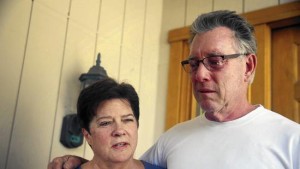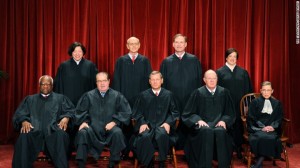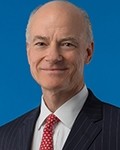Your daily ration of civil justice rationing
It made headlines last year as jurisdictions, acting on a federal court decision out of Oregon, decided they would not honor “hold” requests by U.S. Immigration and Customs Enforcement, known as ICE. Now a San Francisco murder suspect was freed despite such a hold request just before committing the alleged killing. But an attorney for the San Francisco Sheriff’s Department says “…nothing in his background showed anything like that.”
Says an ICE spokesperson: “An individual with a lengthy criminal history, who is now the suspect in a tragic murder case, was released onto the street rather than being turned over to ICE for deportation… we’re not asking local cops to do our job. All we’re asking is that they notify us when a serious foreign national criminal offender is being released to the street so we can arrange to take custody.”
San Francisco County Sheriff Ross Mirkarimi said ICE misses the point. “ICE was informed about San Francisco’s position on detainers,” he said, “but did not seek a court order for Sanchez’s transfer as required under the law.”
The Courts Monitor follows immigration issues because the cases are civil, not criminal. Read more from the L.A. Times here:
NY Passes ‘Aspirational’ Civil Gideon Measure
Here’s another civil Gideon milestone: New York’s senate and assembly have passed a non-binding “policy” of providing legal assistance to “persons in need of the essentials of life,” becoming the first state to take such action to provide civil representation. San Francisco and other cities have some level of civil Gideon programming.
The resolution was suggested in a 2014 report to Chief Judge Jonathan Lippman by the Task Force to Expand Access to Civil Legal Services, to make the case for increasing available state funding for civil legal services over the past five state budgets.
Read more here.
Housing Rules Yet Another Huge SCOTUS 5-4 Decision
Obamacare and same-sex marriage naturally dominated attention over recent U.S. Supreme Court decisions, but a huge housing issue also got a 5-4 ruling that leans toward the court’s liberal side. The court, in effect, re-affirmed a federal law passed in 1968 to combat housing discrimination by, as CNN explained, “… holding that the law allows not only claims for intentional discrimination but also, claims that cover practices that have a discriminatory effect, even if they were not motivated by an intent to discriminate.”
Justice Anthony Kennedy wrote the 5-4 opinion for a closely divided Court concerning the scope of the Fair Housing Act. He noted that “… much progress remains to be made in our nation’s continuing struggle against racial isolation.” His opinion was joined by Justices Ruth Bader Ginsburg, Elena Kagan, Sonia Sotomayor and Stephen Breyer.
Opponents including the state of Texas argued that the law punished outcomes without any intent of harming anyone, and actually injects more, not less, race into housing development decisions.
Read the CNN coverage here.




